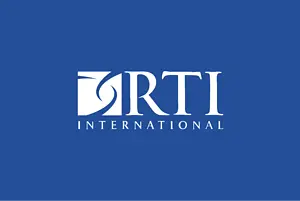Joint project delivers drop-in fuel that can be used in today’s engines
RESEARCH TRIANGLE PARK, N.C. — Syzygy Plasmonics announced today that it along with the nonprofit research institute RTI International have successfully demonstrated an all-electric CO₂-to-Fuel production pathway at RTI’s facility in Research Triangle Park, North Carolina, USA. The new technology can significantly decarbonize transportation by converting two potent greenhouse gases, carbon dioxide (CO₂) and methane (CH₄), into low-carbon-intensity fuels that can be used to lower the carbon footprint of fossil-based jet fuel, diesel, and gasoline. The pilot project was sponsored by Equinor Ventures and Sumitomo Corporation of Americas (SCOA).
Results from this first-of-a-kind (FOAK) demonstration are providing data that will be used to design and build commercial CO₂-to-Fuel plants enabled by Syzygy’s technology. The project combined three of Syzygy’s CO₂-reforming reactors with RTI’s Fischer-Tropsch (FT) pilot plant to produce FT crude, which can be further refined into aviation-grade kerosene. When fed by captured CO₂ and combined with biogas, landfill gas, or renewable natural gas, this solution delivers extremely low-carbon and low-cost sustainable aviation fuel (SAF).
“This project showcases our ability to fight climate change by converting harmful greenhouse gases into fuel,” said Syzygy CEO Trevor Best. “Our light-driven reactors produce valuable syngas at a ratio that is ideal for feeding Fischer-Tropsch units to produce SAF. Syzygy syngas can also be used to produce diesel, gasoline, and methanol. At scale, we’re talking about significantly reducing and potentially eliminating the carbon intensity of shipping, trucking, and aviation. This is a major step toward quickly and cost effectively cutting emissions from the heavy-duty transport sector.”
This project marks the successful integration of multiple Syzygy reactor cells in a multi-cell stack at a third-party site, demonstrating Syzygy’s pathway for scaling its technology. At commercial scale, a typical Syzygy plant will consume nearly 200,000 tons of CO₂ per year, the equivalent of taking 45,000 cars off the road.
“The results of this demonstration are encouraging and represent an important milestone in our collaboration with Syzygy,” said Sameer Parvathikar, Ph.D., director of renewable energy and energy storage at RTI. “We are pleased to have played an impactful role in shaping this promising technology.”
Learn more about RTI's decarbonization sciences research
About Syzygy Plasmonics
Syzygy Plasmonics is working to decarbonize the chemical industry, responsible for almost 20 percent of industrial CO₂ emissions, by using light instead of combustion to drive chemical reactions. With Rigel™ reactor cells now ready to ship, Syzygy is commercializing a universal photocatalytic platform. When powered with renewable electricity, this tunable technology is designed to reduce both cost and emissions from many different chemical reactions. Starting with solutions designed to reform greenhouse gases into low-carbon fuels and produce low- and zero-emissions hydrogen, the company's mission is to create a world where chemicals, fuels, and fertilizer are low cost, carbon neutral, and accessible to everyone. For more information visit plasmonics.tech.
About RTI International
RTI International is an independent, nonprofit research institute dedicated to improving the human condition. Clients rely on us to answer questions that demand an objective and multidisciplinary approach—one that integrates expertise across the social and laboratory sciences, engineering, and international development. We believe in the promise of science, and we are inspired every day to deliver on that promise for the good of people, communities, and businesses around the world. For more information visit www.rti.org.

Photo: Syzygy Plasmonics
To request an interview, contact our Media Relations team.
